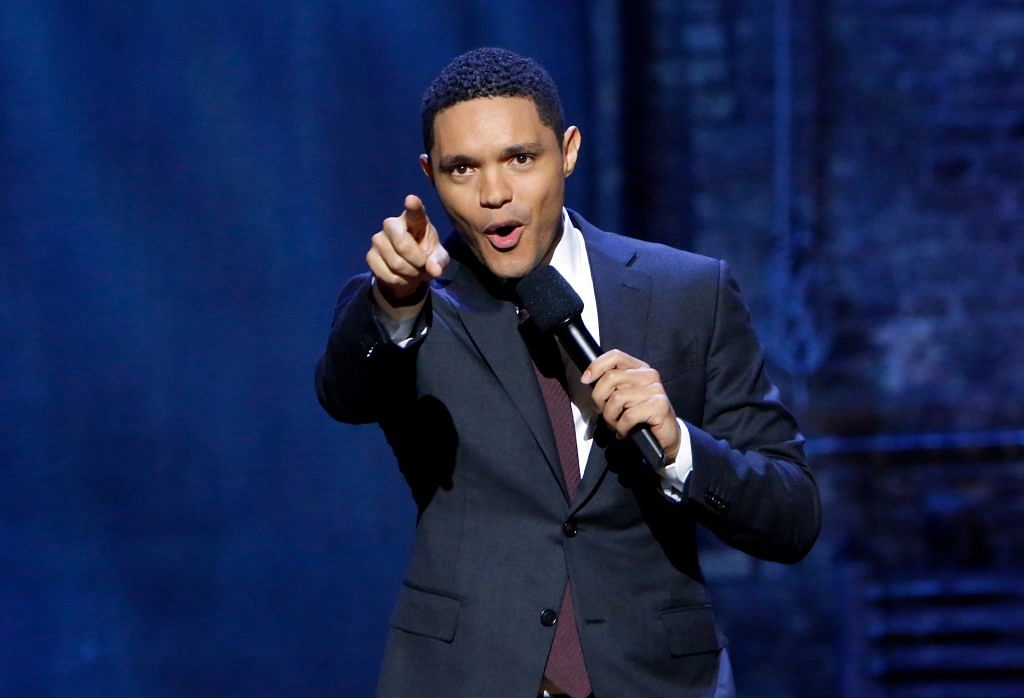How many friends would you have if you imposed the same standard of retrospective justice on them?
To excommunicate Trevor Noah from the fold of your movement for a misguided statement he made about aboriginal women five years ago is not only short-sighted but unfair.
An Australian aboriginal woman wrote an open letter to Trevor Noah after a 2013 video of him making an offensive joke about aboriginal women resurfaced on the internet.
Soon after, Australians on social media called for a boycott of Noah’s tour, which is slated to begin on 23 August in Melbourne. The video was taken down from YouTube, and for all intents and purposes, Trevor Noah was cancelled, well, at least in the land down under.
I am so disgusted and appalled by the comments by @Trevornoah and his attempted humour that denigrates Aboriginal women I hope Australians boycott his shows in #Brisbane #Sydney #Melbourne #Perth #Australia That kind of ‘humour’ is not funny and does damage! #racismitstopswithme https://t.co/yplwK2CtI7
— Dr Anita Heiss (@AnitaHeiss) July 22, 2018
Look at these two sentences: Aboriginal women are all ugly. Trevor Noah has always been and will be a racist, insensitive bigot.
What about those two sentences is similar? They are essentialist, leaving no room for growth or agency.
How many friends would you have left if you imposed the same standard of retrospective justice on them— I doubt your 20-year-old self would make the cut. Just like you weren’t born prejudiced, you weren’t born woke either. It is at this intersection of negotiation between social conditioning and instinct that we constantly rediscover who we are.
“All women of every race can be beautiful,” Noah said in the video of him performing a stand-up routine, adding “I know some of you are sitting there now going, ‘Oh Trevor… I’ve never seen a beautiful Aborigine’ But you know what you say? You say, ‘Yet.’ Because you haven’t seen all of them, right?”
In the call-out culture we inhabit, the grey area is frustratingly underrated. In a world increasingly being held ransom to who wins this game of ideological tug-of-war, there is no longer room for those still deciding which team they want to play for, or rather, if they want to play at all. Personally, I don’t exactly enjoy having red palms from rope-burn, and the constant back and forth – left and right we go – has made me lose a sense of balance.
I’m a Frisbee girl, it cuts through the bullshit and there’s a lot less grunting.
We are angry, I know, I feel it too. As an Indian woman, my backpack is burdened with a history of colonial oppression that we all assume is so 1947. It’s not, because I carry my brown, poor, South-Asian country like a white person’s albatross around my neck – paying in shame for someone else’s crimes.
Yet, I know my fight must be a strategic one because it’s definitely going to last a long time. Our collective simmering rage is starting to spill over, but we must channel it. Fighting wars of righteousness are far easier when you have a face to point a finger at, but this momentary catharsis is also a lot less constructive. In this culture of calling-out, we must allow room for evolution, especially for those who have unmistakably toiled to not only become better people but also make the world a better place.
This is why I don’t play tug-of-war. Because creating rigid moulds of correctness not only eliminates any room for discourse but also makes you a lot like the enemy you’re fighting. The only way we can ‘make a point’ in this polarised world is to pick an extreme side, and then shout the same rehearsed theory to confirm your stand. To engage with a contrarian view is hard work, and frankly, all of us have become intellectually lazy.
Sure, Sonam Kapoor changed her surname and Alia Bhatt copped out of making a meaningful comment on the #MeToo movement, as did literally everyone in the film industry, and yet here we stand today – liking their pictures on Instagram, stalking their weddings and relationships, and praising Bhatt’s performances in Raazi. Lisa Haydon even apologised a year later for her ignorant comment about feminism. “I had never given feminism much thought. I guess it was a lack of education because now I surely know what a feminist is,” she said in an interview.
I need my allies and they won’t always be perfect, but they must always be open to growth.
Of all the outrage, it’s strange to think that the open letter to Noah was the only one to acknowledge the need for dialogue. “I expect that all the media criticism, while warranted, has not been easy. So I extend an invitation when you arrive on Aboriginal Land. An invitation to sit and chat about Aboriginal women’s history. Our experiences,” Summer May Finlay, a Yorta Yorta woman wrote as her ending thought.
That’s all I’m asking for really, ‘an invitation to sit and chat’ for the likes of all Noahs.
I’d love to visit another community in Oz Joe. Always open to learning more ??
— Trevor Noah (@Trevornoah) July 23, 2018
